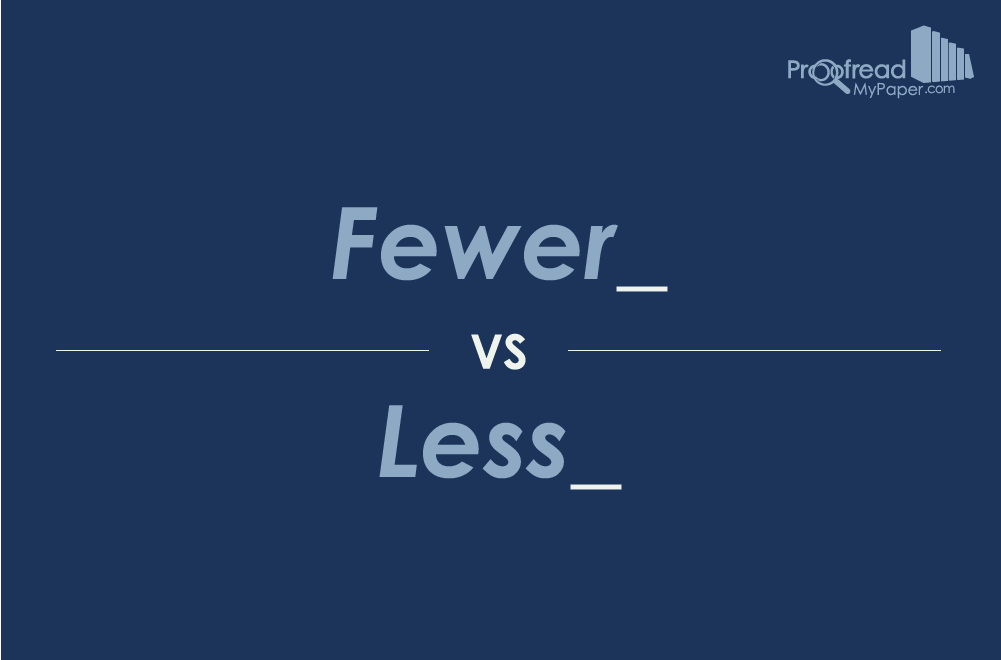Confusions between “fewer” and “less” can provoke fury among pedants: In the UK, one store even changed its signs after a campaign to enforce correct grammar!
The difference between “fewer” and “less” is subtle, though, so it’s easy to mix them up in your written work (or on your shop signs) if you’re not careful.
Fewer (Countable Quantities)
The word “fewer” means “a smaller number of people or things.” More specifically, “fewer” applies to things you can count or number, like stones or apples:
There were seven apples in this bowl, now there are four; that’s three fewer than yesterday.
We say “fewer” here because “apple” is a countable noun (i.e., apples can be counted out as individual apples).
Less (Uncountable Quantities)
The word “less” simply means “not so much” or “smaller in amount.” It differs from “fewer” by applying principally to uncountable nouns, usually substances or concepts that cannot be counted individually, such as water or pain:
My shoulder still aches, but I’m in less pain than I was.
The use of “less” indicates the pain has reduced. However, it doesn’t imply a severe pain is an accumulation of smaller pains in the same way that a bowl of apples contains several apples.
Fewer or Less?
A good tip for knowing when to use “fewer” or “less” is to consider whether the word modified is singular or plural, since singular terms take “less” and plural terms take “fewer.” This can be judged by whether the word would usually be followed by “is” or “are.”
Find this useful?
Subscribe to our newsletter and get writing tips from our editors straight to your inbox.
For instance, we say “water is wet” rather than “waters are wet” because water is a singular noun. Likewise, we say “apples are delicious” rather than “apples is delicious” because “apples” is plural.
By working out whether we’re describing a singular or plural noun, we determine which of “fewer” or “less” to use:
Singular/Countable Nouns = Fewer
Plural/Uncountable Nouns = Less
Time, Money and Distance
One more thing to keep in mind is that quantities of time, money and distance usually take “less” rather than “fewer.” This is because we treat measurements as singular rather than plural.
For example, although $100 could be counted out as one hundred individual dollars, we usually think of it as a single quantity of one hundred dollars. Hence we say “$100 is too much to pay,” not “$100 are too much to pay.”
Likewise, when it comes to “fewer” and “less,” we usually say “I have less than $100,” not “I have fewer than $100.”
